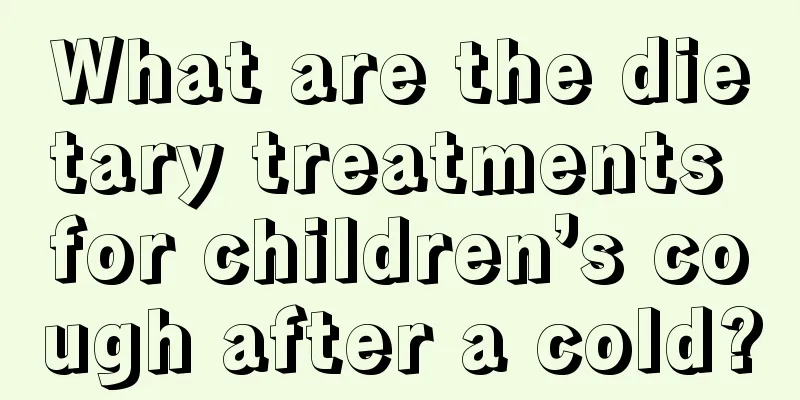Reasons why children sweat coldly when sleeping at night

|
Many of us parents always have a lot of pressure and questions when facing the growth of our children. Many children have problems here and there during their development. For example, some children always have cold sweats when they sleep at night. We all know that this symptom of the child must be abnormal, so we must provide timely care for this symptom of the child. So what is the reason why children like to sweat coldly when they sleep at night? Normal reasons: It is mostly normal for babies to sweat excessively, which is medically called physiological hyperhidrosis. For example, the hot weather in summer causes children to sweat excessively; infants and young children sweat on their heads and necks when they just fall asleep, but the sweat decreases after they fall asleep; babies sweat a lot after playing, running and jumping, but are generally in good condition; in winter, babies wear too many clothes, the quilts are too thick at night, and the indoor air-conditioning temperature is too high, causing babies to overheat and sweat a lot. Some babies sweat only on the head and forehead, commonly known as "steamer head". This is also physiological sweating and parents do not need to worry. Abnormal reasons: Babies sweat too much due to certain diseases, which manifests as sweating a lot when they are quiet or after falling asleep at night. The sweat can wet the pillow and clothes, which is called "pathological sweating." Such as active rickets in infants and young children, active tuberculosis in children, hypoglycemia in children, excessive dose of antipyretics and mental factors, such as excessive excitement and fear. Some babies have endocrine diseases (such as hyperthyroidism, etc.), which can also cause pathological sweating. In addition to excessive sweating, each disease also has many other disease manifestations. Parents need to take their baby to the hospital for further examinations. (1) Active rickets. Babies under one year old sweat a lot. If they lack outdoor activities and sun exposure, and do not add cod liver oil and calcium powder in time, parents should observe whether the baby has other manifestations of rickets in addition to sweating, such as crying at night, crying and shaking the head on the pillow while sleeping, resulting in hair loss circles on the back of the head (also known as occipital baldness), ping-pong head (the bone in the occipital bone becomes soft, and it feels like touching a ping-pong ball), square skull (the forehead is protruding and the head is shaped like a square box), and a large anterior fontanelle that closes late. Parents should take their baby to the hospital for examination by a doctor to make a clear diagnosis. (2) Active tuberculosis in children. Babies often sweat a lot not only in the first half of the night, but also in the second half of the night before dawn, which is called "night sweats". At the same time, there are poor appetite, low fever in the afternoon (some have high fever), flushed face, weight loss, and some have cough, enlarged liver and spleen, swollen lymph nodes and other symptoms. There is often a history of contact with tuberculosis, and the elderly, parents or nannies in the family suffer from tuberculosis. (3) Hypoglycemia. It is often seen in the hot summer when babies sweat a lot, refuse to eat at night, and feel listless when waking up in the morning. The children show symptoms of sadness and restlessness, pale complexion, cold sweats, even profuse sweating, and cold limbs. (4) Pediatric endocrine diseases (this type of disease causing excessive sweating is relatively rare). For example, children with hyperthyroidism are mostly school-age children, mostly girls. It may manifest as excessive sweating, irritability, increased appetite without weight gain, panic, heart palpitations, and even bulging eyes. Babies with obesity also sweat easily, and they sweat a lot when they move or walk. (5) Other acute and chronic infectious diseases in children can also cause hyperhidrosis. At the same time, it is accompanied by other clinical manifestations: such as typhoid fever, sepsis, rheumatoid disease, connective tissue disease, lupus erythematosus or blood disease. Parents should not be overly anxious when facing this symptom of their children. It is possible that the child's body is normal, but this phenomenon occurs due to some physiological reasons. If the child sweats a lot, you should also check whether the child is too hot, or the child is covered too thickly when sleeping at night. If this is the case, timely improvement should be made for the child, but if it is pathological, the child should be treated in time. |
<<: What to do if your newborn's stomach growls
>>: Symptoms of intracranial hemorrhage in children
Recommend
Why is my baby's poop blue?
The blue color of baby's stool may be caused ...
Why doesn’t my baby gain weight after six months?
It is said that children's bodies grow very f...
What are the symptoms of precocious puberty in children?
Society is progressing, but what worries everyone...
Newborns frequently feed at night
Newborns will also feed several times at night, b...
What to do if your child keeps catching a cold and coughing in autumn
Although autumn has been with us for a long time,...
What should I do if my baby has dry and hard stools and difficulty defecating?
The baby's stool is always very dry and hard,...
Children's heart rate per minute
The heart rate is different at different age stag...
What medicine should children take for vomiting?
Because children's intestines and esophagus a...
Normal range of astigmatism for one-year-old baby
Generally speaking, when a baby is just born, the...
Green poop for newborns?
Newborn babies are generally unable to speak beca...
How to wash the face of a newborn baby
In life, many mothers will use breast milk to was...
Spinal herniation in children
In recent years, many children have developed sym...
What are the harms of excessive exercise to children's health?
In life, many children have the characteristics o...
Four-month-old baby food recipes
Four months is a critical period for babies, and ...
What causes vitiligo in children?
Young children are still in the development stage...









